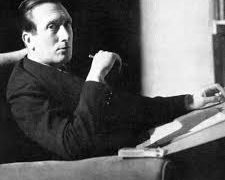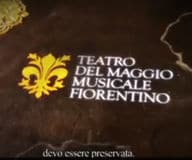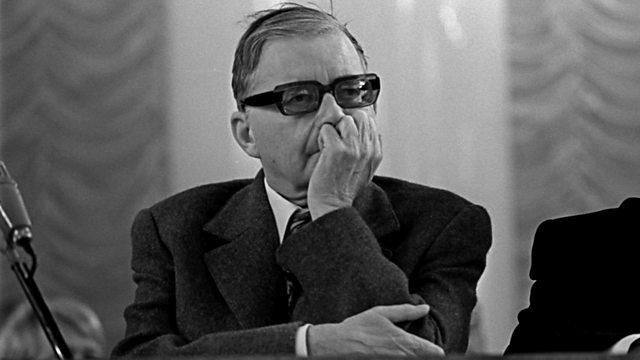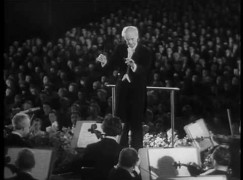Is this Walton’s finest hour?
mainFrom the Lebrecht Album of the Week:
Walton is very much an on-off composer. What’s remarkable about this recording is that the performance transcends his shortcomings.
Read on here.
And here.
And here.


From the Lebrecht Album of the Week:
Walton is very much an on-off composer. What’s remarkable about this recording is that the performance transcends his shortcomings.
Read on here.
And here.
And here.

A concert at the Teatro Maggio Musicale to…

The musicians picked their moment to blank the…

In our report on Wednesday’s performance of the…

The Wilhelm Furtwängler Society has shared with us…

Session expired
Please log in again. The login page will open in a new tab. After logging in you can close it and return to this page.
I can live in a world without Walton, but not, in a world without Carl Maria v Weber. Der Freischutz should be compulsory in all opera houses lederhosen and all!
I’m glad you like the recording. Your critique will encourage me to buy a copy. Let’s not be too harsh on Walton. The Partita, for me, is a fresh and charming work, and over the years I for one have had much pleasure from his music. The Viola Concerto is another beauty, with its morose moments, but no less expressive for that. His music for Henry V is as memorable as Olivier’s acting, Belshazzar’s Feast, however bombastic, is a thrilling piece, the Symphonies are strong, meaningful and wonderfully orchestrated. Facade is enormous fun.
I’m glad that I read your comment that Walton is an” on-off” composer, because it is going to lead me to a reappraisal of his music. Maybe I will conclude that you are right ( I hope not! ) but I know that I shall have enormous pleasure on the way!
The Kennedy/Previn recordings of the Violin and Viola Concertos are on one of my favourite CDs. I want to rush to Ischia as soon as I hear the opening! And B’s Feast isn’t all bombast; wonderful subtle (and difficult) quiet section for the choir just before things explode again at the end.
I am rather fond of WW’s first symphony and like it better each time I listen to it. Also the Portsmouth Point Overture keeps my attention.
His house and gardens on Ischia are well worth a visit. Ferry from Naples – then short taxi ride.
Here it is: La Mortella on Ischia. (Giardini La Mortella).
http://www.lamortella.org/en/
The unforgettable Susana Walton’s book “Behind the Facade” is a fascinating behind-the-scenes look at her marriage. She always said that there was enough gossipy material for another book but the editors were afraid of lawsuits. Juicy reading…
I love Walton’s scores for “Hamlet” and “Henry V” – both Olivier films. (In fact, I’d go on the record to say Olivier’s “Hamlet” was one of the greatest British films of all time!)
https://www.youtube.com/watch?v=TEDYlp7jpi0
I think Walton was certainly a very gifted composer but perhaps also a lazy one. Once he’d written the viola concerto, the first symphony and Belshazzar he kept on rehashing these with ever diminishing returns.
+1
I don’t think that’s true. Walton certainly showed a great deal of growth from the Viola Concerto through the 2nd Symphony, the Partita, and his last works. His style became clearer and leaner, perhaps even ascerbic. There is far more economy of means and his themes became shorter, more often merely motives for development. While this music is certainly less epic, there is still much rhetorical flourish. I’ve performed the 2nd Symphony and the Violin Concerto, and I consider those works to be among the very best of Walton.
Merely my opinion, but one founded upon first-hand acquaintance with a lot of the composer’s music.
+1 Yes
It’s so easy to put down poor William Walton as a facile lightweight. For those who do, I’d suggest digging — really digging — into one of his scores to uncover the careful craft of this man. If he worked slowly — and he did — that doesn’t suggest laziness.
While I first encountered him through Facade and Belshazzar, those works have little to do with his later works like the wonderful Cello Concerto. It’s probably also a good idea to look further than the coronation marches — pieces that were commissioned for state occasions — for some of his much more interesting works. (But don’t get me wrong. I always get out Crown Imperial or Orb and Sceptre to get my ancestral British blood flowing!)
+1
“Spitfire Prelude and Fugue” is a pleasant piece. Wonder if some german composer of that time wrote a “Ju-88 Pastorale & Toccata”…
The Walton disc in question is available for audition in its entirety at Netherlands Radio4’s site (along with other such juicy offerings as Ivan Fischer’s Mahler 3). Discs at Plaatpaal rotate out on a weekly basis so get your listening done soon.
http://www.radio4.nl/plaatpaal/712/walton-vioolconcert-anthony-marwood
For the Variations try Szell/CO. The wind playing is, as usual, superb and the whole even better.
While Walton may not have been in the same league as some of his contemporaries, such as Shostakovich (born only a few years apart), his music deserves more attention from orchestras.
The Hindemith Variations (on the CD in question) is a prime example of a sorely neglected Walton masterpiece. For whatever it is worth, it was a personal favorite of George Szell and his Cleveland recording remains outstanding.
The Violin Concerto is one of my personal Walton pieces. If given more of a chance in concert halls I suspect it would catch on with audiences, but it seems like 75 percent of all violin concerto performances are the ones by either Beethoven, Brahms, Mendelssohn, or Tchaikovsky.
The Partita is a fun curtain opera. For better or for worse it was written to show off the Szell era Cleveland Orchestra’s virtuosity.